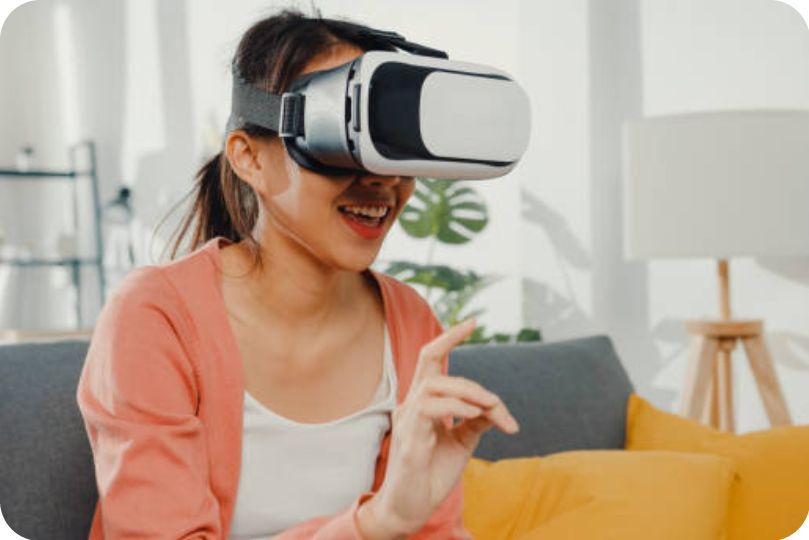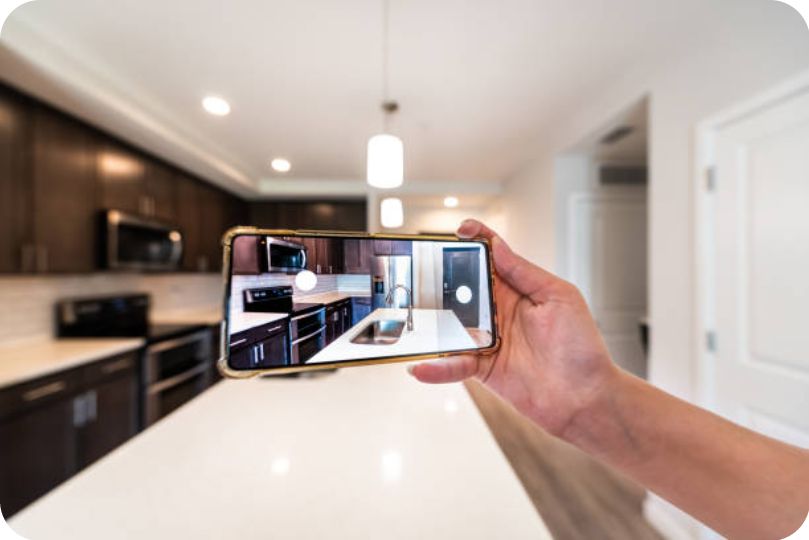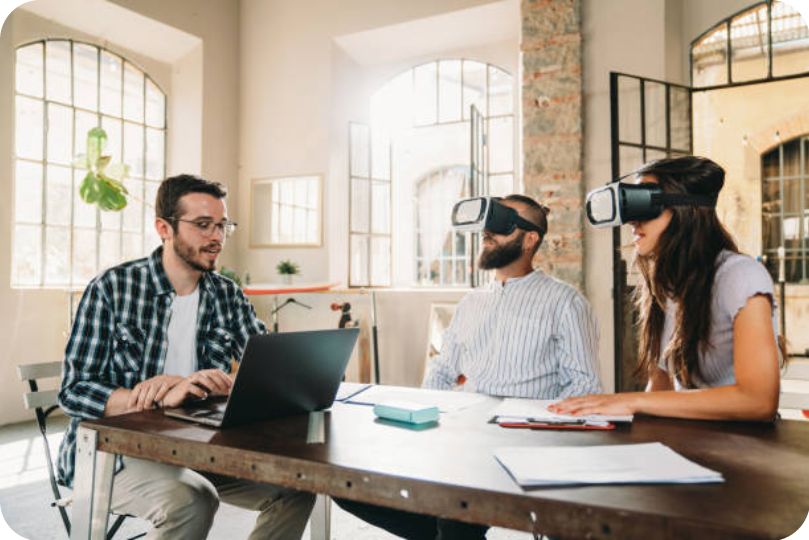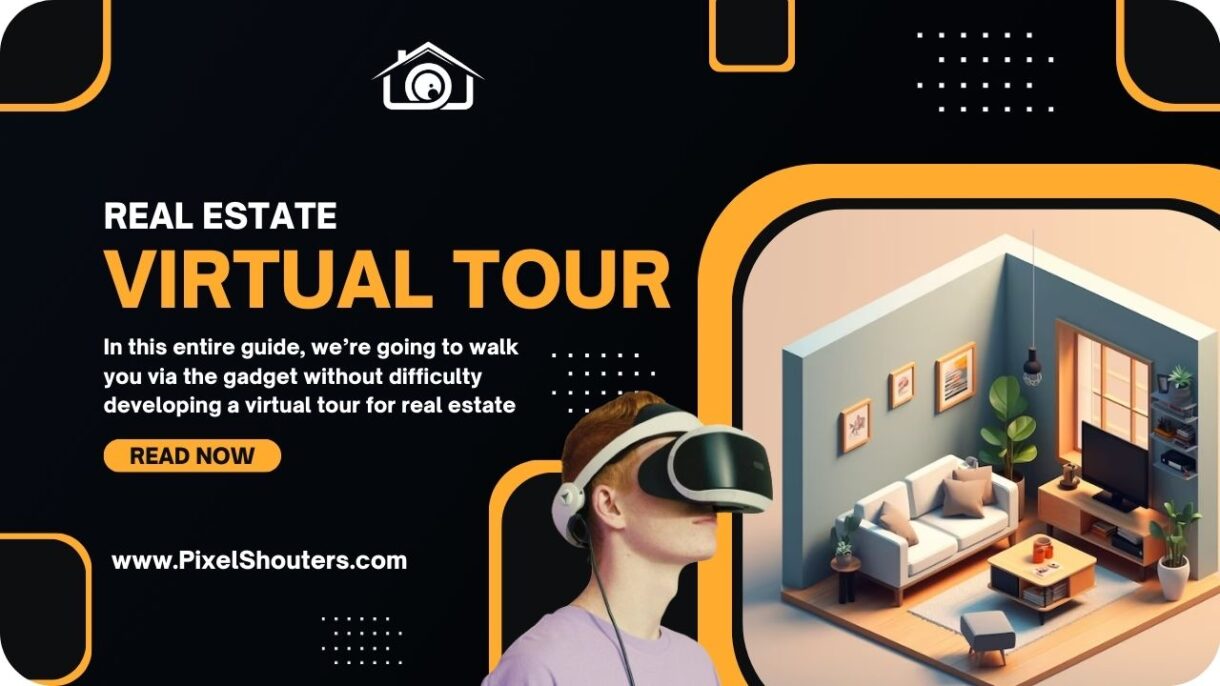Revolutionize Your Listings: A Definitive Guide to Crafting Compelling Virtual Tour for Real Estate
Creating a captivating virtual tour for real estate is a useful device in the current day competitive market. As more homebuyers flip to online systems to discover houses, offering an immersive and interactive digital experience could make all the difference. In this entire guide, we’re going to walk you via the gadget without difficulty developing a virtual tour for real estate, from essential gadgets and devices to editing and advertising strategies.
Virtual Tour for Real Estate Guide
I. Introduction
In recent years, the real estate business enterprise has undergone a virtual transformation, with virtual tours turning into today’s function in property listings. This shift is driven by the preference to provide ability clients an extra immersive experience, allowing them to discover homes from the consolation in their non-public devices.
A. The Rise of Virtual Tours
With the upward thrust of online property listings, virtual tours have turned out to be a powerful device for real estate professionals. They not only showcase a property’s competencies however additionally provide a sense of the general go with the flow and layout, supporting capability customers to make extra knowledgeable alternatives.
B. Advantages of Virtual Tours
- Engaging Prospective Buyers: Virtual tours captivate the aim marketplace and keep them engaged longer than static pix.
- Immersive Experience: The potential to definitely “stroll through” a property gives a more immersive experience for capable customers.
- Competitive Edge: In a crowded market, virtual tours can assist listings stand out and attraction to more interest.

II. Why Virtual Tours Matter
A. Engaging Prospective Buyers
Traditional photographs won’t completely seize the essence of a property. virtual tours, as an alternative, permit capacity clients to discover every room, presenting a greater practical and whole view.
B. Immersive and Interactive Experience
A nicely-crafted virtual tour creates a experience of presence, allowing visitors to navigate through the property as if they were bodily there. This interactive experience fosters a deeper reference to the gap.
C. Stand Out from the Competition
As virtual tours become increasingly popular, integrating them into your listings can give you a competitive edge. They demonstrate a commitment to providing a modern and convenient homebuying experience.
III. Essential Tools and Equipment
To create an effective virtual tour, you’ll need the right tools and equipment. Below are the key items you need to begin:
A. High-Quality Camera or Smartphone
Invest in a camera with high resolution and good low-light performance. Alternatively, a recent smartphone with a quality camera can also produce impressive results.
B. Stable Tripod
A stable tripod is crucial for capturing steady shots. This is especially important when shooting in low-light conditions or when using slower shutter speeds.
C. Wide-Angle Lens
A wide-angle lens helps capture more of the space in each shot. This is essential for providing viewers with a comprehensive view of the property.
D. 360-Degree Camera (If Applicable)
For a fully immersive experience, consider using a 360-degree camera. This allows viewers to look in any direction within a given space.
E. Virtual Tour Software Options
Choose a virtual tour software platform that suits your needs. Some popular options include Matterport, 3D Vista, and Kuula. These platforms often offer user-friendly interfaces and tools for creating and customizing virtual tours.
IV. Preparing the Property
Before diving into the virtual tour creation process, it’s essential to prepare the property to ensure it looks its best in the final product.
A. Clean and Declutter the Space
A clean and clutter-free environment makes a positive impression on potential buyers. Remove personal items and excess furniture to showcase the space’s potential.
B. Enhance Lighting for Better Visibility
Good lighting is crucial for capturing appealing images. Open curtains, turn on all lights, and consider using external lighting sources to brighten darker areas.
C. Stage Key Areas to Showcase Functionality
Highlight the functionality of each room by strategically staging key areas. This helps potential buyers envision how they could use the space.
V. Shooting the Virtual Tour
Now that the property is ready, it’s time to start capturing the virtual tour. Follow these steps for an organized and effective shooting process.
A. Plan a Logical Route
Before starting the shoot, plan a logical route through the property. This ensures a smooth flow and makes it easier for viewers to navigate the virtual tour.
B. Capture the Property’s Exterior and Surroundings
Begin the virtual tour by capturing the exterior of the property and its surroundings. This provides context and sets the stage for the interior shots.

C. Highlight Key Features and Selling Points
Focus on showcasing the property’s unique features and selling points. Capture details that set the property apart, such as architectural elements, upgraded appliances, or scenic views.
D. Maintain Consistency in Photo Quality and Style
Consistency is key for a polished virtual tour. Ensure that all photos are of similar quality, with consistent exposure, color balance, and composition.
VI. Editing and Enhancements
After capturing the images, the next step is to edit and enhance them to create a cohesive and visually appealing virtual tour.
A. Selecting the Best Shots
Review all captured shots and select the best ones for the virtual tour. Eliminate any duplicates or shots that don’t contribute to showcasing the property effectively.
B. Correcting Exposure and Color Balance
Use photo editing software to correct exposure and color balance. This step ensures that all images have a uniform and professional look.
C. Adding Descriptive Captions or Tags
Enhance the virtual tour by adding descriptive captions or tags to highlight specific features. This provides valuable information to viewers as they navigate through the property.
D. Considering Virtual Staging for Empty Spaces
If the property is vacant, consider virtual staging to help potential buyers visualize the space with furniture and decor. Virtual staging can be a cost-effective way to enhance the appeal of empty rooms.
VII. Choosing the Right Virtual Tour Platform
Once the images are edited and enhanced, it’s time to choose a virtual tour platform for hosting and customization.
A. Overview of Popular Virtual Tour Platforms
- Matterport: Known for its immersive 3D virtual tours.
- 3D Vista: Offers customizable virtual tours with a user-friendly interface.
- Kuula: A platform that supports both 360-degree photos and virtual tours.
B. Considerations When Selecting a Platform
Consider factors such as ease of use, customization options, and pricing when choosing a virtual tour platform. Some platforms may offer additional features, such as floor plans or virtual reality compatibility.
C. Uploading and Customizing the Virtual Tour
Follow the platform’s instructions for uploading your virtual tour. Customize the tour by arranging the order of images, adding interactive elements, and including any additional information about the property.
VIII. Sharing and Marketing
With the virtual tour created and customized, it’s time to share it with your target audience.
A. Embedding Virtual Tours on Property Listings
Most virtual tour platforms provide embed codes that can be used to include the virtual tour directly on property listings. This increases visibility and engagement.
B. Sharing on Social Media Platforms
Leverage the power of social media to share your virtual tour. Platforms like Facebook and Instagram are excellent for reaching a broad audience.
C. Integrating Virtual Tours into Marketing Materials
Incorporate virtual tours into other marketing materials, such as email campaigns, newsletters, and promotional materials. This reinforces your commitment to providing a modern and immersive homebuying experience.
IX. Troubleshooting and Common Challenges
While creating a virtual tour, you may encounter challenges that need addressing. Explore common problems and discover troubleshooting solutions for them.
A. Addressing Issues with Lighting or Reflections
If certain areas have challenging lighting conditions or unwanted reflections, consider retaking those shots with adjusted settings or additional lighting.
B. Dealing with Technical Glitches
Virtual tour platforms may occasionally experience technical glitches. Stay informed about platform updates and be prepared to troubleshoot any issues that may arise.

C. Tips for Ensuring a Smooth User Experience
Prioritize a seamless user experience by testing the virtual tour on different devices and browsers. Address any navigation or loading issues to ensure viewers have a positive experience.
X. Conclusion
In conclusion, by integrating virtual tours into your real estate marketing toolkit, you not only meet the evolving expectations of today’s homebuyers but also position yourself as a forward-thinking and tech-savvy professional in the industry. These immersive experiences not only captivate potential buyers, but they also provide a modern and innovative way to showcase properties. As you embark on incorporating virtual tours, remember to continually experiment and seek ways to enhance the quality and impact of your virtual marketing efforts. Elevate your real estate game by embracing the power of engaging virtual tours – a key to staying ahead in the competitive market.
